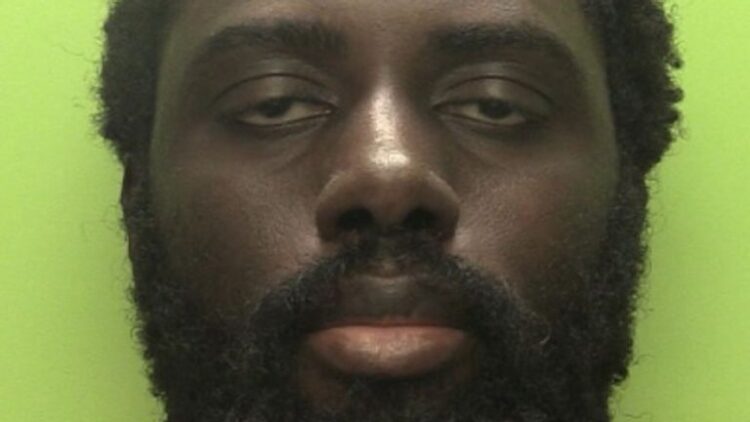By Lucy Caulkett-
A man who killed two Nottingham University students and a school caretaker in a knife and van rampage has been sentenced to be detained at a high-security hospital.
Nottingham Crown Court heard that 32 year old Valdo Calocane, who suffered from paranoid schizophrenia, had previously been detained in hospital four times under mental health laws and had a history of refusing to take his medication.
Calocane repeatedly stabbed Barnaby Webber and Grace O’Malley-Kumar, both aged 19, with a dagger as they walked home after a night out to celebrate the end of their exams.
The crazed man also knifed school caretaker Ian Coates, 65, to death as he made his way to work at Huntingdon Academy in the early hours of 13 June last year.
Pedestrians Wayne Birkett, Marcin Gawronski and Sharon Miller were then driven at in Milton Street and Upper Parliament Street, in the city centre.
During sentencing, the killer was told he would be detained “very probably for the rest of [his] life”.
Speaking outside court, the victims’ families criticized the police, prosecutors and the NHS.
“This man made a mockery of the system and he has got away with murder,” said Mr Coates’ son, James Coates.
Mr Webber’s mother Emma said “true justice has not been served today” and that her “devastated” family had been “let down”.
“We trusted in our system, foolishly as it turned out,” she said, telling the assistant chief constable of Nottinghamshire Police Rob Griffin: “You have blood on you hands.
“If you had just done your job properly, there’s a very good chance my beautiful boy would be alive today.”

Grace O’Malley-Kumar, Barnaby Webber and Ian Coates
Prosecutors accepted Calocane’s guilty pleas to their manslaughter, not murder, on the basis of diminished responsibility. He also admitted three counts of attempted murder after hitting three pedestrians in a van he stole from Mr Coates.
Nottingham Crown Court heard Calocane, who suffered from paranoid schizophrenia, had previously been detained in hospital four times under mental health laws and had a history of refusing to take his medication.
On Thursday, Mr Justice Turner said the injuries inflicted on the students were “unsurvivable”, and referring to the attack on Mr Coates, he told Calocane: “You stabbed him to death with the same merciless ferocity.”
He said Calocane’s “sickening” crimes shocked the nation and “wrecked” the lives of his victims and their families.
The judge went on to individually list family members whose lives had been devastated by the attacks.
“I pay tribute to the extraordinary dignity and strength they have shown,” he said.
Addressing Calocane, Mr Justice Turner said there was “never any doubt” that it was him “who committed these appalling crimes”, and added: “None of the evidence relating to your mental state detracts from the horror of your actions.”
However, he said one of the expert reports revealed Calocane, who was “clearly an intelligent man” having taken a degree in mechanical engineering at Nottingham University, had an established diagnosis of paranoid schizophrenia and that he would never be cured.
He said another expert agreed that “the basis of his behaviour is very likely to have been a psychosis” and added: “You were and remain dangerous.”
Before the sentencing began, one of Mr Coates’s sons got up to speak to the families of Grace O’Malley-Kumar and Barnaby Webber.
Lee Coates said “our family are here for you always”, which was echoed with “yes” from the other families and followed by a round of applause.
“I am so sorry we have had to go through this and this is how we’ve met,” Mr Coates added.
Calocane, who graduated from Nottingham University in June 2022 with a degree in mechanical engineering, was born in Guinea-Bissau in West Africa, and came to the UK aged 16 with his family.
Also known as Adam Mendes, he had a history of mental illness, and even once tried to hand himself into the MI5 headquarters in London, believing the British security services were controlling him.
Mr Griffin, said the force “engaged” with the attacker “mostly while supporting our colleagues in the NHS on a number of occasions between 2020 and 2022”.
He was arrested in September 2021 for assaulting a police officer and Mr Griffin said “we should have done more to arrest him” after he failed to attend court, but said it was highly unlikely he would have been jailed.
“Of course, an arrest might have triggered a route back into mental health services, but as we have seen from his previous encounters with those services, it seems unlikely that he would have engaged in this process,” he added.
Calocane was also involved in incidents of criminal damage and an alleged assault on two colleagues while working in a warehouse a month before the killings.
Mr Griffin said he didn’t have any previous convictions, cautions or reprimands and said there wasn’t anything “obvious” to suggest he would launch the Nottingham attacks.




